NEW YORK -- The CIA's chief technology officer outlined the agency's endless appetite for data in a far-ranging speech on Wednesday.
Speaking before a crowd of tech geeks at GigaOM's Structure:Data conference in New York City, CTO Ira "Gus" Hunt said that the world is increasingly awash in information from text messages, tweets, and videos -- and that the agency wants all of it.
"The value of any piece of information is only known when you can connect it with something else that arrives at a future point in time," Hunt said. "Since you can't connect dots you don't have, it drives us into a mode of, we fundamentally try to collect everything and hang on to it forever."
Hunt's comments come two days after Federal Computer Week reported that the CIA has committed to a massive, $600 million, 10-year deal with Amazon for cloud computing services. The agency has not commented on that report, but Hunt's speech, which included multiple references to cloud computing, indicates that it does indeed have interest in storage and analysis capabilities on a massive scale.
The CIA is keenly interested in capabilities for so-called "big data" -- the increasingly massive data sets created by digital technology. The agency even has a page on its website pitching big data jobs to prospective employees.
Hunt acknowleded that at some scale, data storage becomes impractical, adding that he meant "forever being in quotes" when he said the agency wants to keep data "forever." But he also indicated that he was interested in computing capabilities like 1 petabyte of RAM, a massive capacity for on-the-fly calculations that has heretofore been seen only in computers that simulate nuclear explosions.
He referenced the failure to "connect the dots" in the case of Umar Farouk Abdulmutallab, the "underwear bomber" who was able to board a plan with an explosive device despite repeated warnings of his intentions. In that case, a White House review found that the CIA had all of the data it needed to identify the would-be bomber, but still failed to stop him. Nevertheless, the agency does not seem to have curbed its ambitions for an endless amount of data.

A slide from Hunt's presentation.
"It is really very nearly within our grasp to be able to compute on all human generated information," Hunt said. After that mark is reached, Hunt said, the agency would also like to be able to save and analyze all of the digital breadcrumbs people don't even know they are creating.
"You're already a walking sensor platform," he said, nothing that mobiles, smartphones and iPads come with cameras, accelerometers, light detectors and geolocation capabilities.
"You are aware of the fact that somebody can know where you are at all times, because you carry a mobile device, even if that mobile device is turned off," he said. "You know this, I hope? Yes? Well, you should."
Hunt also spoke of mobile apps that will be able to control pacemakers -- even involuntarily -- and joked about a "dystopian" future where self-driving cars force people to go to the grocery store to pick up milk for their spouses.
Hunt's speech barely touched on privacy concerns. But he did acknowledge that they exist.
"Technology in this world is moving faster than government or law can keep up," he said. "It's moving faster I would argue than you can keep up: You should be asking the question of what are your rights and who owns your data."




























Posted: 03/20/2013 4:52 pm EDT | Updated: 03/21/2013 11:10 am EDT